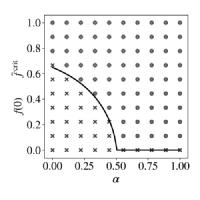Dr. Giacomo Vaccario
Senior Researcher

Giacomo is a senior researcher at the Chair of Systems Design, ETH Zurich. In this group, he worked as a post-doc and obtained a Doctorate in Science in 2019. Before joining ETH Zurich, he completed the Part III of the Mathematical Tripos from the University of Cambridge and received a Master in Theoretical Physics from Sapienza University of Rome.
Giacomo’s research interests lie in understanding the determinants and effects of cooperation in socio-economic systems. He studies how collaborations are established among firms or scientists to create new knowledge. He also investigates how the knowledge of these actors, in turn, defines their collaborations. To capture this feedback, he combines statistical analysis of patent and publication data with agent-based models. In recent years, he has worked extensively on how psychological and cognitive processes can foster but also hamper the emergence of cooperation. To this end, he has developed mathematical models and experiments leveraging game theory and complex systems theory.
Giacomo publishes papers in major peer-review journals. He is a member of the editorial board for the journal Social Network Analysis and Mining and has been a guest editor of the journal Advances of Complex Systems. He is also an active reviewer for various venues, including Journal of Informetrics, European Physics Journal - Data Science, and Physica A.
On top of the research activity, Giacomo has been teaching the course Agent-Based Modelling of Social Systems with Prof. Frank Schweitzer. Now Giacomo is at the Chair of Ecosystem Managment working on the wood supply chain. Personal webiste.
Giacomo's most recent publications
Irrational herding persists in human-bot interactions
Scientific Reports - 2025
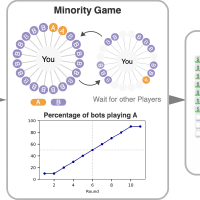
Coexistence of balance and hierarchies: An ego perspective to explain empirical networks
PNAS Nexus - 2025
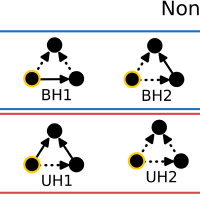
The quest for an unbiased scientific impact indicator remains open
PNAS - 2024
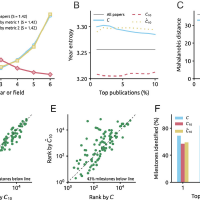
Efficiency and resilience: Key drivers of distribution network growth
EPJ Data Science - 2024
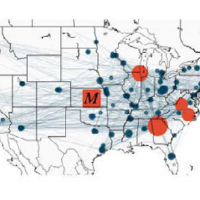
Adapting to disruptions: Managing supply chain resilience through product rerouting
Science Advances - 2024
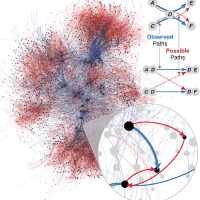
Reconstructing signed relations from interaction data
Scientific Reports - 2023
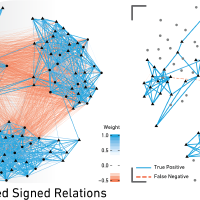
Modeling the impact of environmental consciousness on the supply-demand relationship between firms and customers
Available at SSRN 4403242 - 2023
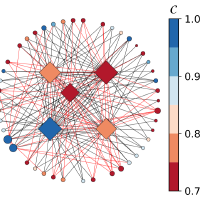
Fragmentation from group interactions: A higher-order adaptive voter model
Physica A: Statistical Mechanics and its Applications - 2023
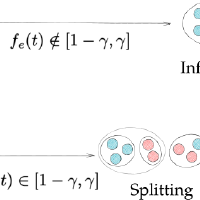
Modeling social resilience: Questions, answers, open problems
Advances in Complex Systems - 2022
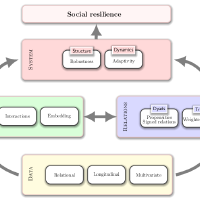
When standard network measures fail to rank journals: A theoretical and empirical analysis
Quantitative Science Studies - 2022
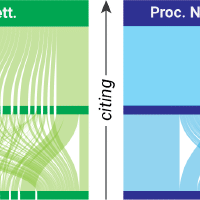
The Role Of Network Embeddedness On The Selection Of Collaboration Partners: An Agent-Based Model With Empirical Validation
Advances in Complex Systems - 2022
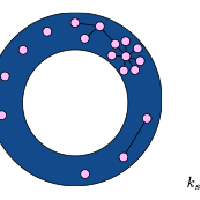
Consensus from group interactions: An adaptive voter model on hypergraphs
Physical Review E - 2022
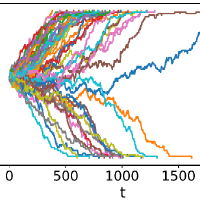
Network embeddedness indicates the innovation potential of firms
arXiv - 2022
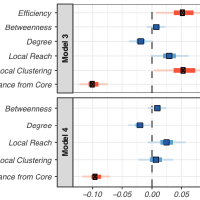
Reproducing scientists' mobility: a data-driven model
Scientific Reports - 2021
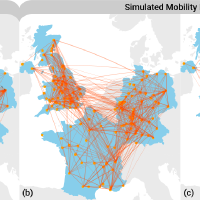
Should the government reward cooperation? Insights from an agent-based model of wealth redistribution
Advances in Complex Systems - 2021
